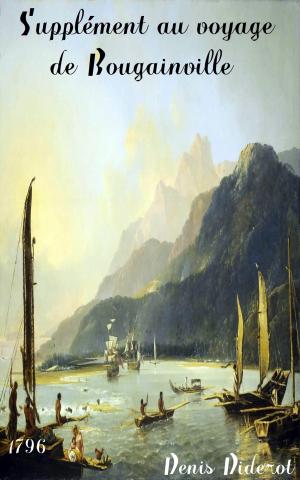| Author: | Nabile Farès, Peter Thompson (translator) | ISBN: | 9781935084198 |
| Publisher: | Lavender Ink | Publication: | September 27, 2012 |
| Imprint: | Diálogos | Language: | English |
| Author: | Nabile Farès, Peter Thompson (translator) |
| ISBN: | 9781935084198 |
| Publisher: | Lavender Ink |
| Publication: | September 27, 2012 |
| Imprint: | Diálogos |
| Language: | English |
This translation of Exile and Helplessness marks the introduction to the English-speaking world of Nabile Farès’ great trilogy, La Découverte du nouveau monde (The Discovery of the New World). An experimental work set in the time just after Algeria’s war with France, Exile and Helplessness probes issues of identity—race, gender, nationality—in the wake of European colonialism.
The intensity and self-awareness of this work—in relation to both language and the existential urgency of its content—brings Nabile Farès’ writing closer to the white heat of poetry than to the narrative leisure of the novel. This is writing as enactment and not as mere representation. The immense pleasure in reading Farès’ work—a pleasure that shines through in Peter Thompson’s excellent translation—comes from the nomadicity of his language, the thinking and doing that happens at any given moment all over the place, if we let it. Let it happen to you; you’ll be the richer for it.
—Pierre Joris, Editor of The University of California
Book of North African Literature.
“You have to learn to read between the lines of the sky, and of the tree, in the gaps that overflow with light and possibility.” Peter Thompson’s nimble and evocative translation brings to English readers the oracular intensity of Nabile Farès’ “multiple kind of speech.” Exile and Helplessness is a risky dialectic of prose and poetry, distance and rootedness, words and body, the politics of living and dying, of the female and the male, of liberation, anguish and ecstasy.
—Adam J. Sorkin, translator of Ioan Flora’s
Medea and Her War Machines
This translation of Exile and Helplessness marks the introduction to the English-speaking world of Nabile Farès’ great trilogy, La Découverte du nouveau monde (The Discovery of the New World). An experimental work set in the time just after Algeria’s war with France, Exile and Helplessness probes issues of identity—race, gender, nationality—in the wake of European colonialism.
The intensity and self-awareness of this work—in relation to both language and the existential urgency of its content—brings Nabile Farès’ writing closer to the white heat of poetry than to the narrative leisure of the novel. This is writing as enactment and not as mere representation. The immense pleasure in reading Farès’ work—a pleasure that shines through in Peter Thompson’s excellent translation—comes from the nomadicity of his language, the thinking and doing that happens at any given moment all over the place, if we let it. Let it happen to you; you’ll be the richer for it.
—Pierre Joris, Editor of The University of California
Book of North African Literature.
“You have to learn to read between the lines of the sky, and of the tree, in the gaps that overflow with light and possibility.” Peter Thompson’s nimble and evocative translation brings to English readers the oracular intensity of Nabile Farès’ “multiple kind of speech.” Exile and Helplessness is a risky dialectic of prose and poetry, distance and rootedness, words and body, the politics of living and dying, of the female and the male, of liberation, anguish and ecstasy.
—Adam J. Sorkin, translator of Ioan Flora’s
Medea and Her War Machines















